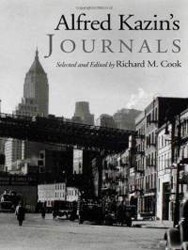By
– December 6, 2011
Israel Zangwill, Jew in a very English Christian Victorian/Edwardian world, shared Henry Higgins’ attitude, for he wanted “them” to be more like “us,” crucially adding that “we” should also be like “them,” an ultimately exhausting dilemma for him. Novelist, playwright, poet, essayist, journalist, editor, lecturer, campaigner, proselytizer, political activist, celebrity, England to America and back again, he was protean.
How to handle Zangwill, who has since faded from public awareness, in a biography? Dr. Meri-Jane Rochelson, an academic, provides chronology and labels genres thoroughly, so that the narrative coagulates into a densely repetitive, encyclopedic style, diminishing Zangwill’s electrifying personality. In nearly every mention of Children of the Ghetto, The Melting Pot, King of the Schnorrers, Dr. Rochelson repeats her descriptors, diluting his appealing wit, charm, and wry sarcasm aimed at Jewish — albeit slum and ghettoized— mores.
Zangwill advocated women’s suffrage; he intermarried, and did not circumcise his male children. He stood desperately as a Territorialist against the Balfour/Zionist solution to the horrors of the 19th and early 20th centuries of Jewish existence in Europe.
There is a place for this new biography, but it is not an inspiring work. Acknowledgements, bibliography, chronology, index, notes, permission acknowledgements.
How to handle Zangwill, who has since faded from public awareness, in a biography? Dr. Meri-Jane Rochelson, an academic, provides chronology and labels genres thoroughly, so that the narrative coagulates into a densely repetitive, encyclopedic style, diminishing Zangwill’s electrifying personality. In nearly every mention of Children of the Ghetto, The Melting Pot, King of the Schnorrers, Dr. Rochelson repeats her descriptors, diluting his appealing wit, charm, and wry sarcasm aimed at Jewish — albeit slum and ghettoized— mores.
Zangwill advocated women’s suffrage; he intermarried, and did not circumcise his male children. He stood desperately as a Territorialist against the Balfour/Zionist solution to the horrors of the 19th and early 20th centuries of Jewish existence in Europe.
There is a place for this new biography, but it is not an inspiring work. Acknowledgements, bibliography, chronology, index, notes, permission acknowledgements.
Arlene B. Soifer earned degrees in English, and has had many years of experience as a freelance writer, editor, and public relations professional.




